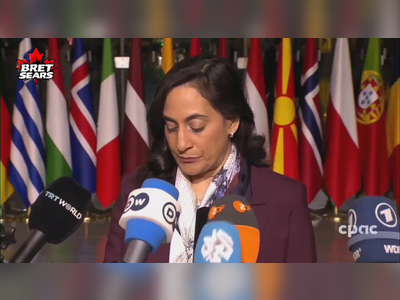
Poland Launches Nationwide Review of Childhood Vaccination Records Following Diphtheria Case
A serious diphtheria case in an unvaccinated child prompts health authorities to examine vaccination coverage across the country.
A six-year-old child who was not vaccinated has been hospitalized with diphtheria in Wrocław, Poland, after returning from a trip to Africa, leading health officials to initiate a nationwide review of childhood vaccination records.
The case, confirmed on March 14, has escalated concerns regarding the re-emergence of this serious disease and the rising trend of vaccine hesitancy among parents.
The child is in serious but stable condition at the J. Korczak Paediatric Centre in Lower Silesia, as reported by Prof. Leszek Szenborn, the head of the Paediatric and Infectious Diseases Clinic at the University Clinical Hospital in Wrocław.
Prof. Szenborn stated, "We diagnosed symptoms of throat and larynx diphtheria.
The child returned from a stay in Africa.
Unfortunately, they were not vaccinated."
Diphtheria is a bacterial infection caused by Corynebacterium diphtheriae.
Historically, it has been a major health threat, responsible for widespread epidemics and significant mortality rates until widespread vaccination campaigns began in the mid-20th century.
In the 1950s, Poland experienced annual diphtheria cases in the tens of thousands, with reported deaths ranging from 1,500 to 3,000.
The last notable wave of diphtheria outbreaks in Europe occurred between 1993 and 1996, primarily affecting former Soviet states after the collapse of the Soviet Union, with over 150,000 cases documented during that period.
Isolated cases did surface in Poland, largely due to migration from countries where the disease was more prevalent.
Prof. Szenborn elaborated on the history of diphtheria in Poland, highlighting its decline due to the effectiveness of vaccination.
The mandatory diphtheria vaccination schedule in Poland includes four doses within the first 18 months of a child's life, with a booster at six years of age.
While vaccination uptake has historically ensured herd immunity and rarity of the disease—evidenced by only two reported cases in 2024 and one in 2023—vaccine hesitancy is reportedly on the rise.
Parents who opt out of vaccinations can face fines up to €330, though enforcement mechanisms vary.
Dr. Paweł Grzesiowski, Chief Sanitary Inspector, indicated that the enforcement of vaccination requirements poses challenges, noting lengthy legal processes often involved in administering penalties.
Research indicates that only a small fraction of parents—5-7%—change their minds when sanctioned.
In response to the recent diphtheria case, the Chief Sanitary Inspectorate has begun an epidemiological investigation involving around 500 individuals who may have encountered the child, including passengers from three international flights.
The implementation of preventative measures has been largely completed, and Dr. Grzesiowski remarked that there is no current risk of a diphtheria epidemic in Poland.
The Inspectorate is also examining why the child was not vaccinated despite existing mandatory guidelines.
Relevant authorities across the European Union have been informed about the case, as all diphtheria instances require careful monitoring and management.
The emphasis remains on increasing vaccination rates to prevent future outbreaks, particularly in light of migration from countries where diphtheria is still significant.
Additionally, a nationwide review of vaccination records for approximately 7.5 million children in Poland is scheduled to commence in April.
This initiative aims to verify the vaccination status of all children within the country.
Dr. Grzesiowski stated, "Every vaccination point will be informed about this planned control," reinforcing the government's commitment to bolstering public health measures against diphtheria and other infectious diseases.
The case, confirmed on March 14, has escalated concerns regarding the re-emergence of this serious disease and the rising trend of vaccine hesitancy among parents.
The child is in serious but stable condition at the J. Korczak Paediatric Centre in Lower Silesia, as reported by Prof. Leszek Szenborn, the head of the Paediatric and Infectious Diseases Clinic at the University Clinical Hospital in Wrocław.
Prof. Szenborn stated, "We diagnosed symptoms of throat and larynx diphtheria.
The child returned from a stay in Africa.
Unfortunately, they were not vaccinated."
Diphtheria is a bacterial infection caused by Corynebacterium diphtheriae.
Historically, it has been a major health threat, responsible for widespread epidemics and significant mortality rates until widespread vaccination campaigns began in the mid-20th century.
In the 1950s, Poland experienced annual diphtheria cases in the tens of thousands, with reported deaths ranging from 1,500 to 3,000.
The last notable wave of diphtheria outbreaks in Europe occurred between 1993 and 1996, primarily affecting former Soviet states after the collapse of the Soviet Union, with over 150,000 cases documented during that period.
Isolated cases did surface in Poland, largely due to migration from countries where the disease was more prevalent.
Prof. Szenborn elaborated on the history of diphtheria in Poland, highlighting its decline due to the effectiveness of vaccination.
The mandatory diphtheria vaccination schedule in Poland includes four doses within the first 18 months of a child's life, with a booster at six years of age.
While vaccination uptake has historically ensured herd immunity and rarity of the disease—evidenced by only two reported cases in 2024 and one in 2023—vaccine hesitancy is reportedly on the rise.
Parents who opt out of vaccinations can face fines up to €330, though enforcement mechanisms vary.
Dr. Paweł Grzesiowski, Chief Sanitary Inspector, indicated that the enforcement of vaccination requirements poses challenges, noting lengthy legal processes often involved in administering penalties.
Research indicates that only a small fraction of parents—5-7%—change their minds when sanctioned.
In response to the recent diphtheria case, the Chief Sanitary Inspectorate has begun an epidemiological investigation involving around 500 individuals who may have encountered the child, including passengers from three international flights.
The implementation of preventative measures has been largely completed, and Dr. Grzesiowski remarked that there is no current risk of a diphtheria epidemic in Poland.
The Inspectorate is also examining why the child was not vaccinated despite existing mandatory guidelines.
Relevant authorities across the European Union have been informed about the case, as all diphtheria instances require careful monitoring and management.
The emphasis remains on increasing vaccination rates to prevent future outbreaks, particularly in light of migration from countries where diphtheria is still significant.
Additionally, a nationwide review of vaccination records for approximately 7.5 million children in Poland is scheduled to commence in April.
This initiative aims to verify the vaccination status of all children within the country.
Dr. Grzesiowski stated, "Every vaccination point will be informed about this planned control," reinforcing the government's commitment to bolstering public health measures against diphtheria and other infectious diseases.
AI Disclaimer: An advanced artificial intelligence (AI) system generated the content of this page on its own. This innovative technology conducts extensive research from a variety of reliable sources, performs rigorous fact-checking and verification, cleans up and balances biased or manipulated content, and presents a minimal factual summary that is just enough yet essential for you to function as an informed and educated citizen. Please keep in mind, however, that this system is an evolving technology, and as a result, the article may contain accidental inaccuracies or errors. We urge you to help us improve our site by reporting any inaccuracies you find using the "Contact Us" link at the bottom of this page. Your helpful feedback helps us improve our system and deliver more precise content. When you find an article of interest here, please look for the full and extensive coverage of this topic in traditional news sources, as they are written by professional journalists that we try to support, not replace. We appreciate your understanding and assistance.










